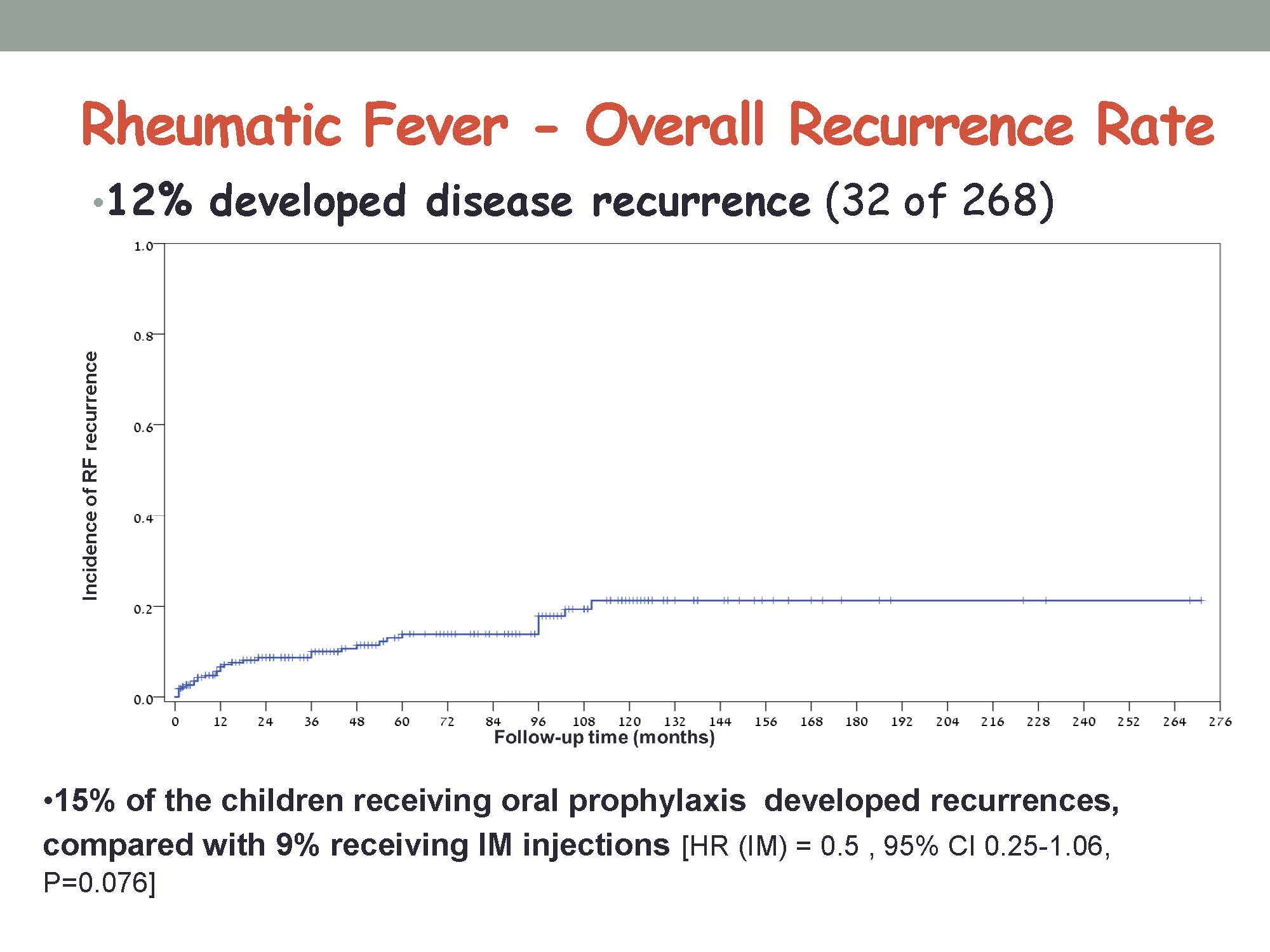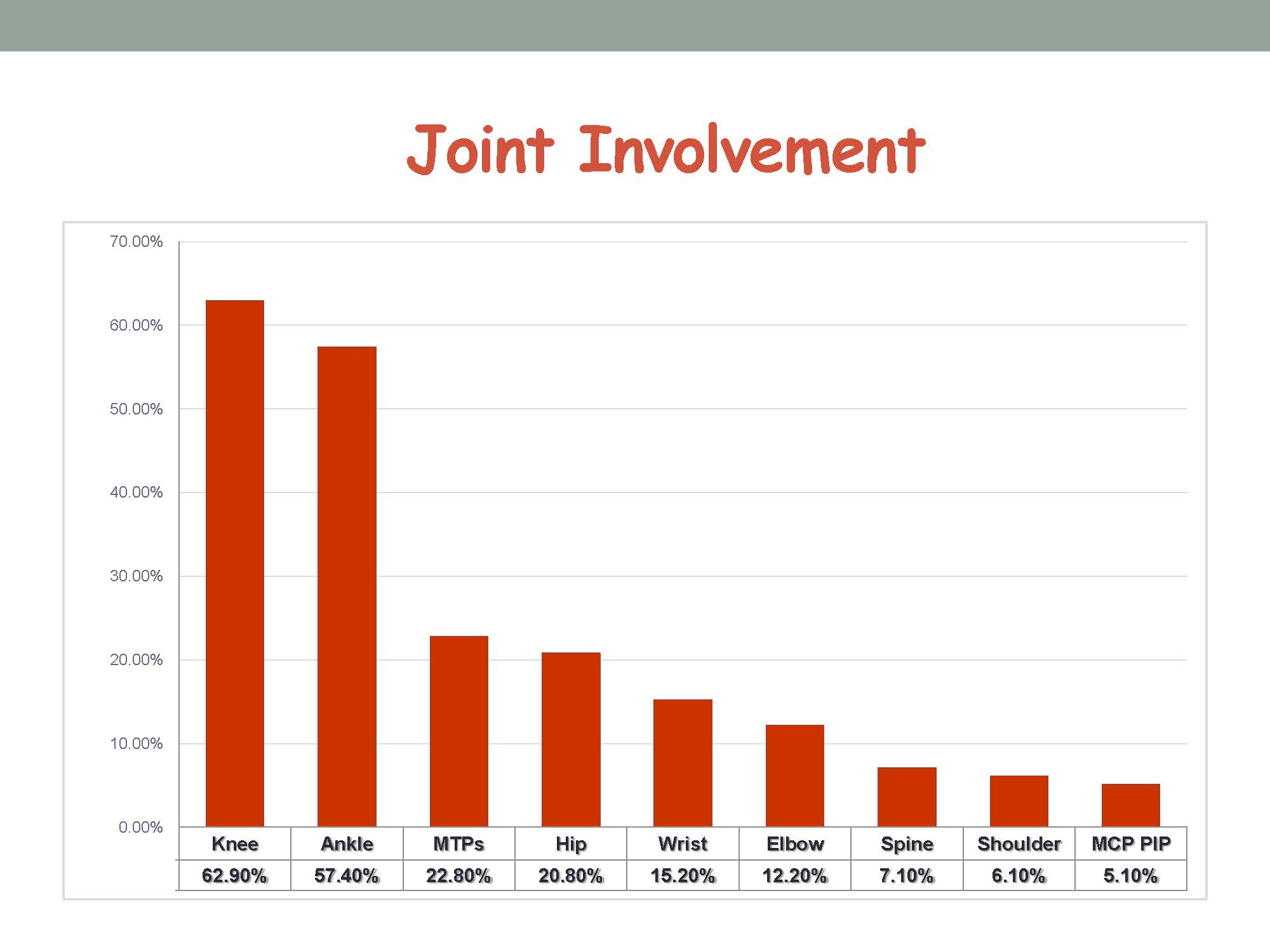Session Information
Session Type: Poster Session (Tuesday)
Session Time: 9:00AM-11:00AM
Background/Purpose: Rheumatic Fever (RF) occurs after a pharyngeal infection caused by group A-B-hemolytic streptococci.Its principal clinical significance is causing carditis at the acute phase of the disease, and valvular impairment, leading to a significant hemodynamic disturbance, as a late sequela.
Aim
To examine the number of cases of Rheumatic fever in Schneider Children’s medical center, and to find whether it has declined during the years of its existence. In addition, to characterize the patient population, clinical characteristics, risk factors and asses the course of the disease. In addition, we will address the relapse rates, with an emphasis on cardiac relapses, with a correlation to preventive treatment.
Methods: Retrospective cohort study was conducted, collecting data of patients with rheumatic fever who were admitted to the Schneider Medical Center from 1993 to 2017.
Results: 307 patients met the inclusion criteria. During the acute phase,64% presented with arthritis, 52% carditis, 15% chorea, 5% erythema marginatum, and 0.7% with subcutaneous nodules. 19.5% developed severe carditis, 13% of whom developed heart failure signs. There was a decrease in incidence of rheumatic fever and rheumatic heart disease during the study period. Median follow-up time was 49 months, 12% of all patients developed a relapse of the disease and 11 of whom (4% of all patients) developed a cardiac relapse.
15% of the patients who received oral prophylaxis experienced relapse, compared to 9% of those who received intramuscular injection therapy.
Conclusion: Despite the reduction in incidence of rheumatic fever and rheumatic heart disease during the study period, the disease remains a significant cause of general and cardiac morbidity among children despite being completely preventable, therefore, It should remain in the mind of every doctor, pediatricians in particular.
To cite this abstract in AMA style:
hammad saied m, Harel L, Amarilyo G, tal r, Zidani R. Rheumatic Fever in a Tertiary Medical Center – 25 Years of Follow Up [abstract]. Arthritis Rheumatol. 2019; 71 (suppl 10). https://acrabstracts.org/abstract/rheumatic-fever-in-a-tertiary-medical-center-25-years-of-follow-up/. Accessed .« Back to 2019 ACR/ARP Annual Meeting
ACR Meeting Abstracts - https://acrabstracts.org/abstract/rheumatic-fever-in-a-tertiary-medical-center-25-years-of-follow-up/



